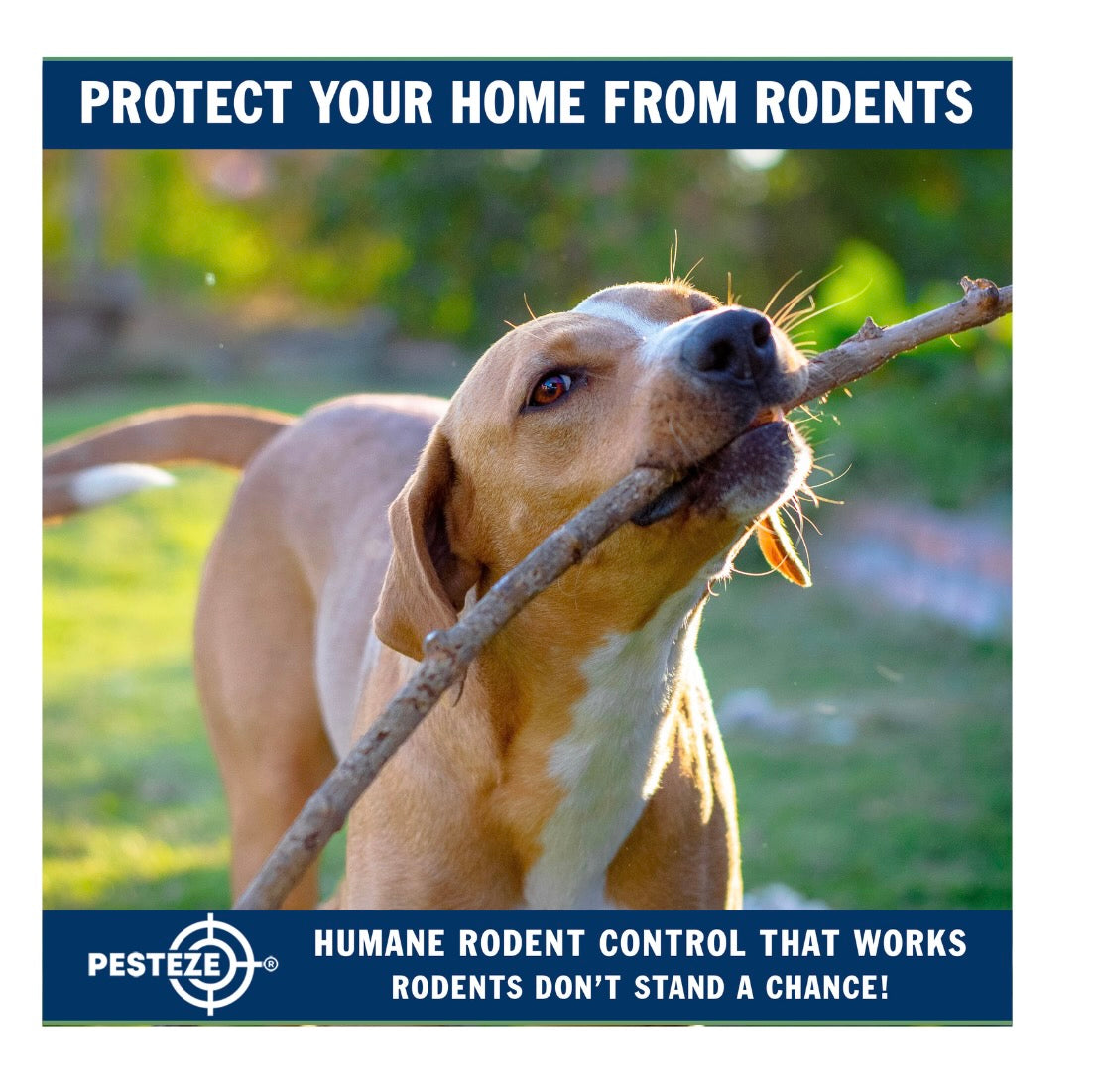HOW TO KEEP PETS SAFE FROM RODENT-RELATED ILLNESSES

HOW TO KEEP PETS SAFE FROM RODENT-RELATED ILLNESSES
SUMMARY
Rodents can carry diseases that are dangerous not only to humans but also to pets. Learn how to protect your furry companions from illnesses like leptospirosis, hantavirus, and parasites transmitted by rodents.
FEATURES
-
Leptospirosis Exposure: Pets can contract this bacterial disease through contaminated water or soil.
-
Parasites from Rodents: Fleas, ticks, and mites from rodents can jump to pets and spread disease.
-
Rodent Dropping Contamination: Ingesting or contacting rodent waste can lead to serious illness.
-
Toxic Rodent Bait: Pets may accidentally ingest poison meant for rodents.
-
Infected Rodent Bites: Pets that catch or fight rodents are at risk of bites and disease.
-
Cross-Species Infection: Pets can carry rodent-borne pathogens into the home, endangering humans.
DESCRIPTION
Rodents aren’t just a nuisance for homeowners—they also pose real health risks to pets. Whether your dog loves to dig in the yard or your cat brings you “gifts” from the basement, these interactions with rodents can lead to dangerous consequences. Understanding the risks and taking preventive steps can help keep your animals safe.
One of the most common concerns is leptospirosis, a bacterial disease that can infect pets through contact with rodent-contaminated water, soil, or urine. It can cause kidney or liver failure in dogs and is zoonotic, meaning it can spread to humans as well. Ensuring your pets are vaccinated and don’t drink from outdoor puddles is key to prevention.
Parasites are another major threat. Rodents are often hosts to fleas, ticks, and mites—all of which can infest pets and transmit diseases like tapeworms, Lyme disease, or mange. Maintaining regular flea and tick prevention routines for pets helps avoid infestations and related health issues.
Rodent droppings and urine can carry harmful pathogens. Pets exploring crawlspaces or garages may ingest or come into contact with this waste, leading to illnesses such as salmonella or toxoplasmosis. Always clean rodent messes using protective gloves and pet-safe disinfectants.
If you're using rodenticides, make sure they’re placed in tamper-proof bait stations and inaccessible to pets. Accidental ingestion can lead to poisoning, which may be fatal without immediate treatment. Opt for pet-safe pest control methods when possible.
Direct interaction with rodents—like biting or eating one—puts pets at risk for physical injury and infection. Encourage indoor play and supervise outdoor time, especially if rodent activity is suspected in your area.
Finally, remember that pets can bring rodent pathogens into your home, exposing humans. Practice regular grooming and cleaning, and seek veterinary advice if your pet shows signs of illness such as vomiting, lethargy, or unusual behavior.
- Nikita Gulrajani


Comments 0